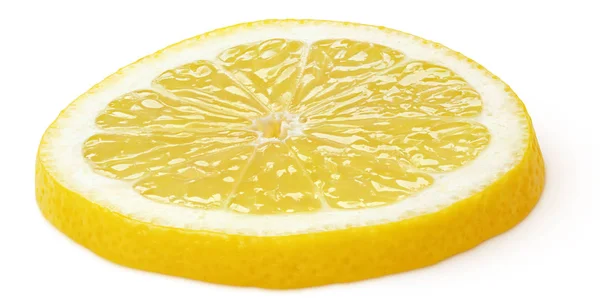How can I use lemon on my face to brighten my skin and reduce dark spots naturally? Lemon, a natural powerhouse packed with vitamin C and antioxidants, is often hailed as a miracle ingredient for skincare.
Whether you’re looking to brighten your complexion, tackle dark spots, or achieve a fresh, radiant glow, learning how to use lemon on your face can unlock numerous skin benefits.
But, before you dive in, it’s crucial to know the right ways to apply it to avoid irritation or sensitivity. Discover how you can safely harness the zesty benefits of lemon for flawless, healthy skin.

How Can i Use Lemon On My Face
How Can I Use Lemon on My Face?
Using lemon on your face can help brighten your skin, reduce dark spots, and fight acne due to its high vitamin C and citric acid content. However, lemon juice must be used carefully to avoid irritation or dryness.
Always dilute it with water or mix it with soothing ingredients like honey or yogurt. Never apply lemon directly to your skin without a patch test to check for sensitivity. Applying lemon at night and following up with sunscreen the next day is essential to prevent sun damage.
Benefits of Lemon for Skin Brightening
Lemon is widely known for its natural skin-brightening properties due to its high levels of vitamin C. This powerful antioxidant helps lighten dark spots and hyperpigmentation by reducing the production of melanin in the skin.
Regular use of diluted lemon juice may help fade blemishes, sun spots, and acne scars, giving the skin a more even tone. Many people use lemon in DIY face masks, often combining it with ingredients like turmeric, honey, or yogurt to enhance its brightening effects while adding hydration and nourishment to the skin.
Lemon for Acne and Blemish Control
Lemon juice has natural antibacterial and astringent properties that can help reduce acne-causing bacteria and shrink pores.
When applied in small amounts, diluted lemon juice may assist in drying out pimples and preventing future breakouts. Some people mix lemon juice with tea tree oil or green tea for an added anti-acne boost.
However, it is important to note that lemon can cause irritation, especially for sensitive or dry skin types. Always patch test and avoid applying lemon to open wounds or active acne lesions to prevent further irritation.
How to Safely Apply Lemon Juice to Your Face
When using lemon on your face, safety should be your top priority. Start by diluting the lemon juice with equal parts of water to reduce its acidity. Apply the mixture using a cotton pad, focusing on areas with dark spots, acne scars, or pigmentation.
Leave it on for 10-15 minutes, then rinse thoroughly with lukewarm water. It’s crucial to moisturize afterward to prevent dryness. Avoid using lemon during the day as it can increase photosensitivity, which may lead to sunburn. Always follow up with sunscreen to protect your skin.
Hydrating Lemon Face Masks
Lemon can be mixed with hydrating ingredients to create nourishing face masks. A popular combination is lemon juice with honey, which soothes the skin while providing moisture. Another option is mixing lemon juice with yogurt, which helps to exfoliate dead skin cells while keeping the skin hydrated.
These masks can be left on the face for 15-20 minutes and are suitable for those looking to brighten their complexion without causing dryness. Regular use of these masks may promote a smoother, more radiant complexion.
Potential Side Effects and Precautions
Though lemon has many benefits, it can also cause side effects if not used properly. Its high acidity can lead to dryness, irritation, and even chemical burns on sensitive skin. It is crucial to dilute lemon juice and perform a patch test before applying it to your entire face.
Additionally, lemon increases the skin’s sensitivity to the sun, so wearing sunscreen after application is non-negotiable. If you have sensitive or dry skin, it may be better to avoid lemon altogether or consult a dermatologist before adding it to your skincare routine.

Benefits of Lemon for the Skin
Lemon is a popular natural remedy for various skin concerns. It’s packed with Vitamin C and antioxidants, making it a powerful tool for brightening skin and improving texture. Many people use lemon in their skincare routine to tackle dark spots, acne, and excess oil. The fruit’s natural acids offer gentle exfoliation while its antibacterial properties keep the skin clear and refreshed.
Vitamin C and Antioxidants
Vitamin C plays a vital role in brightening the skin. It helps reduce melanin production, which can lighten dark spots and hyperpigmentation.
Lemon’s high Vitamin C content also boosts collagen, making the skin appear smoother and more youthful. Antioxidants in lemon combat free radicals, protecting the skin from damage caused by pollution, UV rays, and stress.
Exfoliating Properties
Lemon contains citric acid, which is a natural exfoliant. It helps remove dead skin cells, revealing fresher, smoother skin underneath. Regular use of lemon can improve skin texture, leaving it softer and more even. Many people use lemon as a gentle exfoliator to clear away dull skin and restore a healthy glow.
Skin Brightening and Hyperpigmentation
Lemon is known for its ability to lighten dark spots and scars. Its Vitamin C content helps fade hyperpigmentation by reducing melanin in the skin.
Consistent application of lemon juice can brighten the complexion and make blemishes less noticeable. It’s a natural solution many people turn to for a more radiant, even skin tone.
Anti-Bacterial and Astringent Properties
Lemon’s anti-bacterial properties make it highly effective for oily and acne-prone skin. Its astringent qualities help tighten pores and balance sebum production, reducing the likelihood of breakouts. Many people with oily skin use lemon to keep their complexion clear and reduce excess shine.
By incorporating lemon into your skincare routine, you can take advantage of its powerful natural benefits. From brightening the skin to fighting acne, this citrus fruit offers an affordable and effective solution for a range of skin concerns.
Precautions Before Using Lemon on the Face
Lemon is a popular natural remedy in skincare, but it comes with risks. Its high acidity can disrupt the skin’s pH balance, potentially weakening the skin barrier.
This can lead to irritation, dryness, and redness, especially for sensitive skin types. Using lemon juice directly on the face can make the skin more vulnerable to damage. Always be cautious.
Lemon’s High Acidity
Lemon’s acidic nature, with a low pH level of around 2, can affect the skin barrier. The skin’s natural pH typically ranges between 4.5 and 5.5. When disrupted, it can lead to increased dryness, sensitivity, and redness.
Overuse of lemon can strip away natural oils, resulting in irritation. It’s best to dilute lemon juice before applying it to the skin.
Photosensitivity
Lemon increases photosensitivity, meaning the skin becomes more prone to sunburn after application. This happens because lemon contains compounds called furanocoumarins, which react to UV light.
Without proper protection, this can cause long-term skin damage. Always apply sunscreen after using lemon on your skin to minimize the risk of sunburn.
Patch Testing
Patch testing is a crucial step before using lemon on the face. This helps prevent widespread irritation or allergic reactions.
To perform a proper patch test, apply a small amount of diluted lemon juice to a discreet area, like the inside of your wrist. Wait 24 to 48 hours to check for any signs of redness, itching, or irritation. If there’s no reaction, it’s generally safe to proceed.
How to Properly Use Lemon on the Face
Using lemon on the face can be risky due to its high acidity. The pH level of lemon is very low, which can disrupt the skin barrier. This can lead to irritation, dryness, and redness. People with sensitive skin are especially vulnerable to these effects.
Lemon also increases photosensitivity, making the skin more prone to sunburn. If you use lemon on your face, applying sunscreen is essential. Sunscreen helps protect your skin from harmful UV rays after using lemon-based treatments.
Patch testing is crucial before using lemon on the skin. This test helps determine if your skin will react negatively.
To perform a patch test, apply a small amount of diluted lemon juice to a small area of your skin, like the inside of your wrist. Wait 24 hours to see if any irritation occurs. This step can prevent unwanted reactions when applying lemon to larger areas of the face.
How to Properly Use Lemon on the Face
Lemon is known for its brightening and clarifying properties. But using it directly on the skin can be harsh. Here’s how to use lemon safely on your face.
Dilution Methods
Lemon juice with water
Mix lemon juice with water to reduce its acidity. This will prevent irritation or burning on sensitive skin. Dilution is key to avoid harsh side effects.
Lemon with honey or aloe vera
Mixing lemon juice with honey or aloe vera creates a gentler application. Honey adds moisture, while aloe vera soothes the skin. These mixtures are great for brightening and calming.
Lemon Face Masks
Lemon and Honey Mask
Combine 1 tablespoon of lemon juice with 2 tablespoons of honey. Apply evenly to the face. This mask moisturizes and brightens, perfect for dull or dry skin.
Lemon and Yogurt Mask
Mix 1 tablespoon of lemon juice with 2 tablespoons of plain yogurt. This mask gently exfoliates and calms the skin, ideal for sensitive or irritated skin.
Lemon and Turmeric Mask
Blend 1 tablespoon of lemon juice with a pinch of turmeric and 1 tablespoon of yogurt or honey. This mask targets hyperpigmentation and uneven skin tone.
Spot Treatment for Dark Spots
Lemon juice can lighten dark spots with regular use. Apply lemon juice directly to the dark spots using a cotton swab. Leave it on for 10-15 minutes before rinsing off. Do not use lemon juice on open wounds or sensitive areas.
Best practices: Always rinse thoroughly and moisturize after application. Limit use to 2-3 times per week to avoid over-drying or irritation.
DIY Lemon Scrub
Create a lemon and sugar scrub by mixing equal parts lemon juice and sugar. This exfoliating scrub helps remove dead skin cells.
Be gentle when applying to avoid micro-tears. Use this scrub 1-2 times a week to keep skin smooth and soft without causing damage.
Lemon as a Toner
Dilute lemon juice with water (1 part lemon juice to 2 parts water) for a homemade toner. This can help tighten pores and brighten the skin.
Application
Use a cotton pad to apply the mixture to your face after cleansing. Use 2-3 times a week and always follow up with sunscreen during the day.
Lemon is powerful, but must be used with caution. Proper dilution and mixing with other ingredients ensures safe and effective skincare.
What to Avoid When Using Lemon on the Face
Undiluted Lemon Juice
Using undiluted lemon juice directly on the skin can be harmful. Lemon juice is highly acidic, which can lead to skin irritation or burns. Applying lemon juice straight from the fruit increases the risk of chemical burns, redness, and peeling. Always dilute lemon juice with water before applying it to the skin to reduce these risks.
Lemon and Sun Exposure
Avoid using lemon juice before exposing your skin to sunlight. Lemon juice can make your skin more sensitive to UV rays. This reaction, known as phytophotodermatitis, can cause severe sunburn, dark spots, and rashes. Ensure your skin is protected from the sun if you have recently used lemon juice.
Avoiding Lemon Around Eyes and Open Wounds
Refrain from applying lemon juice near your eyes or on broken skin. The skin around the eyes is particularly sensitive and can easily react to lemon juice, causing irritation or burning.
Similarly, using lemon on cuts or acne can lead to stinging and exacerbate inflammation. Avoid these areas to prevent adverse reactions and discomfort.
By following these guidelines, you can use lemon safely and effectively in your skincare routine while minimizing risks.
Alternatives to Lemon for Skincare
Lemon juice is popular for brightening skin, but it can be too harsh. Fortunately, there are gentler alternatives.
Other Natural Brighteners
Papaya is a great natural option. Its enzyme papain helps exfoliate and lighten skin. Aloe vera soothes and hydrates, promoting a more even skin tone. Cucumber offers cooling effects and helps reduce redness and puffiness. These ingredients are less likely to cause irritation compared to lemon.
Store-Bought Products with Vitamin C
Vitamin C serums and creams are effective for brightening. Formulated Vitamin C products provide a stable, controlled dose of this powerful antioxidant. They are designed to be less irritating than raw lemon juice. These products help improve skin texture and fade dark spots without the risk of chemical burns or sensitivity issues.
Switching to these alternatives and formulated products can offer a gentler approach to achieving glowing skin.
Post-Care After Using Lemon on the Face
Moisturization
After using lemon on your face, proper moisturization is crucial. Lemon juice can be highly acidic and may strip your skin of its natural oils, leading to dryness. Hydrating your skin helps to restore moisture and balance. Opt for gentle, hydrating moisturizers that soothe and protect.
Look for products with ingredients like hyaluronic acid, ceramides, and glycerin. These help to lock in moisture and reduce potential irritation. Applying a rich, non-comedogenic moisturizer can help counteract any dryness caused by the lemon treatment.
Sun Protection
Wearing sunscreen after using lemon on your face is essential. Lemon juice can make your skin more sensitive to UV rays, increasing the risk of sunburn and pigmentation. Choose a broad-spectrum sunscreen with an SPF of 30 or higher.
Opt for sunscreens designed for sensitive skin to avoid further irritation. Look for formulas that are free from harsh chemicals and fragrances. Using sunscreen daily protects your skin from harmful UV damage and helps maintain the results of your lemon treatment.
Consulting a Dermatologist
For individuals with sensitive skin, chronic conditions like eczema, or persistent acne, seeking professional advice is crucial. Dermatologists provide expert guidance tailored to your skin’s unique needs.
If home remedies fail or exacerbate issues, it’s time to consult a dermatologist. They can help navigate safe and effective treatment options.
Role of a Dermatologist in Guiding Safe Home Remedies
A dermatologist’s role is vital in ensuring home remedies are safe for your skin type. They assess your skin’s condition and recommend appropriate treatments.
Professional advice helps prevent potential reactions and ensures remedies align with your specific needs. Avoid trial and error with products that might worsen your condition.
Personalized Recommendations Based on Skin Type
Personalized skincare advice from a dermatologist is essential for effective treatment. Your skin type and concerns are unique, and a one-size-fits-all approach rarely works.
Dermatologists offer customized recommendations, from product choices to treatment plans. This personalized approach ensures optimal results and minimizes adverse effects.
Getting Tailored Advice for Your Skin
Tailored advice from a dermatologist ensures you address your skin issues effectively. They provide insights into which products and routines suit your skin type.
Professional guidance helps in managing chronic conditions and achieving healthier skin. Prioritize consultations for the best outcomes in your skincare journey.

FAQs
Is it safe to apply lemon directly to my face?
Lemon is highly acidic and can be harsh on the skin. While some people use it to lighten dark spots, it can cause irritation, dryness, and even chemical burns. Always dilute lemon juice with water or mix it with other ingredients like honey before applying it to your skin.
What are the benefits of using lemon on my face?
Lemon contains vitamin C, which is an antioxidant that may brighten the skin, reduce the appearance of dark spots, and improve overall skin tone. Its natural astringent properties can also help control excess oil.
How do I use lemon juice safely on my face?
To use lemon juice safely, mix one part lemon juice with two parts water. Apply it gently to the skin with a cotton pad, avoiding sensitive areas like the eyes and lips. Leave it on for a few minutes, then rinse thoroughly with lukewarm water. Always follow up with a moisturizer and sunscreen.
Can lemon help with acne?
Lemon’s antibacterial properties may help reduce acne-causing bacteria. However, its acidity can be too harsh for acne-prone skin, potentially leading to irritation and worsening breakouts. It’s best to patch-test and consult a dermatologist before using lemon for acne treatment.
Will using lemon lighten dark spots?
Lemon’s natural citric acid may help lighten dark spots over time. However, because lemon can make your skin more sensitive to the sun, it’s crucial to wear sunscreen daily when using it. The lightening effects are usually mild and take time to appear.
How often can I use lemon on my face?
It’s recommended to use lemon sparingly, no more than once or twice a week. Overuse can strip the skin of its natural oils, causing dryness, redness, and irritation.
Are there any side effects of using lemon on my skin?
Yes, potential side effects include skin irritation, redness, peeling, and sensitivity to the sun. Always dilute lemon juice and perform a patch test before applying it to your face to minimize the risk of adverse reactions.
Can I use lemon on sensitive skin?
Lemon is not recommended for sensitive skin due to its high acidity, which can cause stinging, irritation, and allergic reactions. If you have sensitive skin, it’s better to opt for gentler skincare ingredients.
Is it okay to leave lemon on my face overnight?
No, leaving lemon juice on your face overnight can cause severe dryness, irritation, and even chemical burns. It should be rinsed off after a few minutes to avoid damaging your skin.
Should I use sunscreen after applying lemon to my face?
Absolutely. Lemon can make your skin more photosensitive, increasing the risk of sunburn and hyperpigmentation. Always apply sunscreen with at least SPF 30 after using lemon on your face, even on cloudy days.
conclusion
Incorporating lemon into your skincare routine can be a refreshing and natural way to enhance your skin’s brightness and clarity. However, it’s essential to use it cautiously due to its high acidity, which may cause irritation or sensitivity, especially for those with delicate skin.
Always dilute lemon juice with water or mix it with other ingredients like honey or yogurt to balance its effects. Patch test before applying, avoid sun exposure after use, and consult a dermatologist if you experience any adverse reactions. With careful use, lemon can be a helpful addition to your skincare regime.

